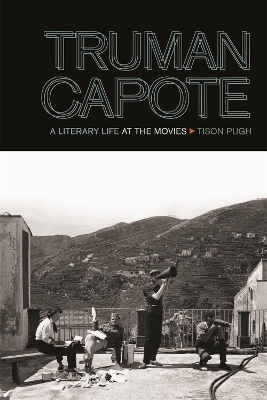The South on Screen Ser.
1 total work
Truman Capote once remarked, "My primary thing is that I'm a prose writer. I don't think film is the greatest living thing"; nonetheless, his legacy is in many ways defined by his complex relationship with cinema, Hollywood, and celebrity itself. In Truman Capote: A Literary Life at the Movies, Tison Pugh explores the author and his literature through a cinematic lens, skilfully weaving the most relevant elements of Capote's biography- including his highly flamboyant public persona and his friendships and feuds with notable stars-with insightful critical analysis of the films, screenplays, and adaptations of his works that composed his fraught relationship with the Hollywood machine.
Capote's masterful short stories and novels ensure his status as an iconic author of the twentieth century, and his screenplays, including Beat the Devil, Indiscretion of an American Wife, and The Innocents, allowed him to collaborate with such Hollywood heavyweights as Humphrey Bogart, John Huston, and David O. Selznick. Throughout his professional life he circulated freely in a celebrity milieu populated by such notables as Marlon Brando, Elizabeth Taylor, and Marilyn Monroe. Cinematic adaptations of his literature, most notably Breakfast at Tiffany's and In Cold Blood, play with or otherwise alter Capote's queer literary themes, often bleaching his daring treatment of homosexuality in favour of heterosexual romance.
Truman Capote: A Literary Life at the Movies reveals Capote's literary works to be not merely coincident to film but integral to their mutual creation, paying keen attention to the ways in which Capote's identity as a gay southerner influenced his and others' perceptions of his literature and its adaptations. Pugh's research illuminates Capote's personal and professional successes and disappointments in the film industry, helping to create a more nuanced portrait of the author and bringing fresh details to light.
Capote's masterful short stories and novels ensure his status as an iconic author of the twentieth century, and his screenplays, including Beat the Devil, Indiscretion of an American Wife, and The Innocents, allowed him to collaborate with such Hollywood heavyweights as Humphrey Bogart, John Huston, and David O. Selznick. Throughout his professional life he circulated freely in a celebrity milieu populated by such notables as Marlon Brando, Elizabeth Taylor, and Marilyn Monroe. Cinematic adaptations of his literature, most notably Breakfast at Tiffany's and In Cold Blood, play with or otherwise alter Capote's queer literary themes, often bleaching his daring treatment of homosexuality in favour of heterosexual romance.
Truman Capote: A Literary Life at the Movies reveals Capote's literary works to be not merely coincident to film but integral to their mutual creation, paying keen attention to the ways in which Capote's identity as a gay southerner influenced his and others' perceptions of his literature and its adaptations. Pugh's research illuminates Capote's personal and professional successes and disappointments in the film industry, helping to create a more nuanced portrait of the author and bringing fresh details to light.
